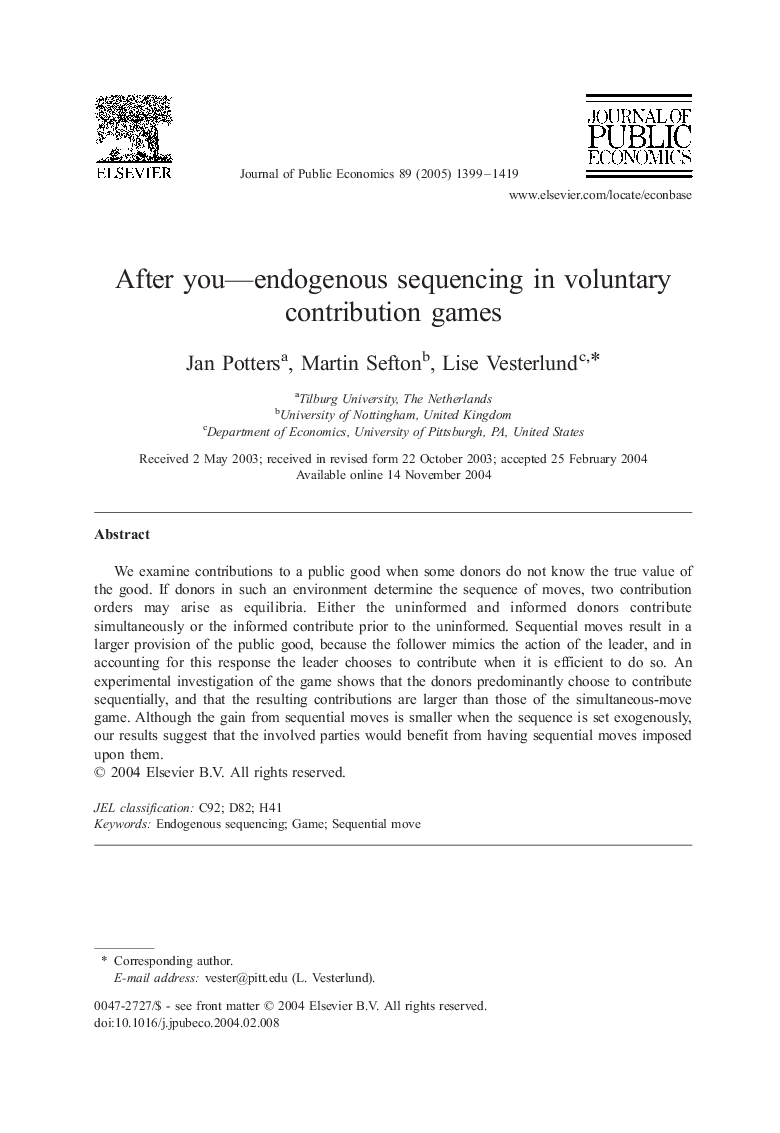| Article ID | Journal | Published Year | Pages | File Type |
|---|---|---|---|---|
| 10479342 | Journal of Public Economics | 2005 | 21 Pages |
Abstract
We examine contributions to a public good when some donors do not know the true value of the good. If donors in such an environment determine the sequence of moves, two contribution orders may arise as equilibria. Either the uninformed and informed donors contribute simultaneously or the informed contribute prior to the uninformed. Sequential moves result in a larger provision of the public good, because the follower mimics the action of the leader, and in accounting for this response the leader chooses to contribute when it is efficient to do so. An experimental investigation of the game shows that the donors predominantly choose to contribute sequentially, and that the resulting contributions are larger than those of the simultaneous-move game. Although the gain from sequential moves is smaller when the sequence is set exogenously, our results suggest that the involved parties would benefit from having sequential moves imposed upon them.
Related Topics
Social Sciences and Humanities
Economics, Econometrics and Finance
Economics and Econometrics
Authors
Jan Potters, Martin Sefton, Lise Vesterlund,
